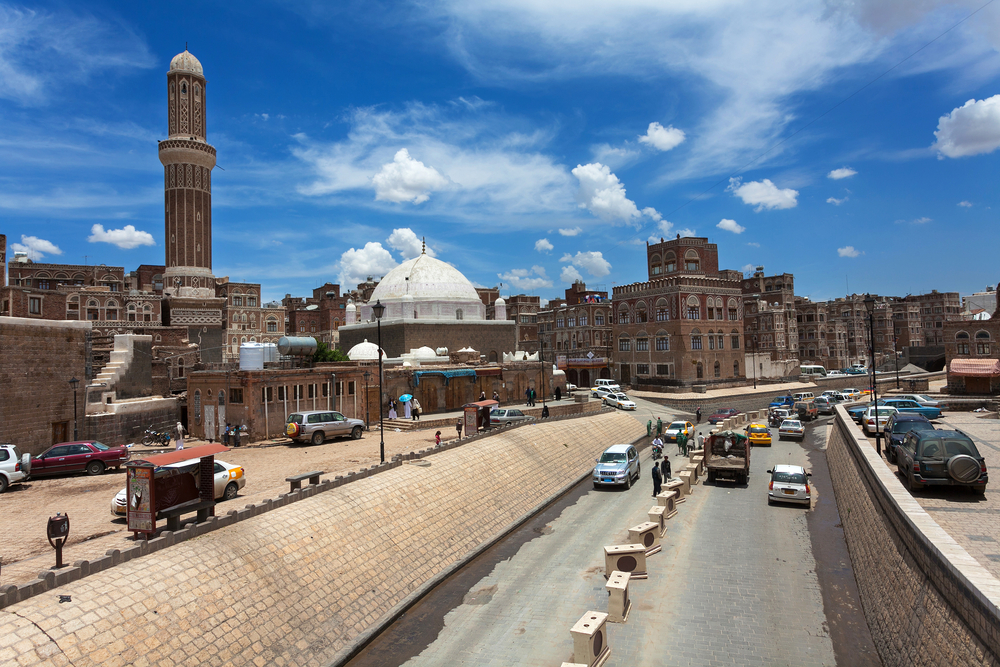
SANAA, Yemen — Military officials and residents say al-Qaida has taken control of a major airport, a sea port and an oil terminal in southern Yemen after brief clashes with troops.
The officials said al-Qaida fighters clashed Thursday with members of one of Yemen’s largest infantry brigades outside Mukalla, a city the militants overran earlier this month. The officials, speaking from Sanaa on condition of anonymity because they were not authorized to brief the press, said the leaders of the brigade fled.
The brigade is in charge of securing the coast of Mukalla, the provincial capital of Yemen’s largest province, Hadramawt. After seizing the airport, the militants easily captured the sea port and oil terminal.
Al-Qaida’s Yemeni branch has long been seen as the network’s most lethal franchise.
THIS IS A BREAKING NEWS UPDATE. Check back soon for further information. AP’s earlier story is below.
Military officials and residents say al-Qaida has taken control of a major airport in southern Yemen after briefly clashing with troops.
The officials say al-Qaida fighters clashed Thursday with members of the infantry brigade in charge of protecting the Riyan airport in the city of Mukalla, a major port city and the provincial capital of Yemen’s largest province, Hadramawt.
Al-Qaida overran the city itself earlier this month and freed inmates, including a militant commander, from its prison.
Nasser Baqazouz, an activist in the city, said the troops guarding the airport put up little resistance.
Al-Qaida’s powerful local branch has exploited the chaos in Yemen, where Shiite rebels and military units loyal to a former president captured the capital in September and have been advancing despite a three-week Saudi-led air campaign.
THIS IS A BREAKING NEWS UPDATE. Check back soon for further information. AP’s earlier story is below.
Yemen’s exiled vice president on Thursday called on Shiite rebels and their allied military units to end their offensive on the southern port city of Aden, saying that ground fighting must halt ahead of any peace initiatives.
Khaled Bahah, speaking from Riyadh, said the rebels and troops loyal to ousted President Ali Abdullah Saleh should adhere to the U.N. Security Council resolution passed earlier this week that calls on Yemenis, especially the Houthis, to end the violence and return to U.N.-led peace talks.
A Saudi-led coalition began an air campaign against the Houthis and their allies on March 26. The U.N. resolution makes no mention of an end to the airstrikes, now in their fourth week.
Bahah said no initiative for ending the conflict would be considered without a “halt to the war machine,” particularly in Aden, Yemen’s second largest city. Yemen’s internationally recognized President Abed Rabbo Mansour Hadi had set up a temporary capital in Aden before fleeing to Saudi Arabia last month.
Bahah also called on all military units to stop fighting for Saleh and return to the fold of the legitimate government.
He said the kidnapping of the defense minister by the Houthi rebels at the outset of their offensive on Aden has left the military in exceptional disarray, but called on military units to end their fighting on behalf of “individuals.”
“We consider Aden to be the key to peace, the key to the solution,” Bahah said. “We will not talk about any initiatives until we see the war machine has stopped in Yemen, and in Aden in particular.”
Bahah was speaking for the first time since Hadi appointed him vice president on Sunday. He said Hadi will return to Aden when the security and political situation improves. For now, he said a small government will operate out of Riyadh, focusing on organizing and coordinating humanitarian efforts.
The Houthis swept down from their northern strongholds and seized the capital, Sanaa, in September. Iran supports the Shiite rebels, but both Tehran and the rebels deny it has armed them.
Ground fighting has been fiercest in Aden, where rebels and pro-Saleh military units are trying to take control of the city.
Humanitarian groups have struggled to meet the needs of a population that was already struggling with food security, water scarcity and fuel shortages. Medical supplies are now running low.
The U.N. Office of the High Commissioner for Human Rights said that at least 364 civilians are reported to have been killed since the start of the airstrikes on March 26, including at least 84 children and 25 women. This is in addition to hundreds of fighters killed.
On Thursday, Human Rights Watch said at least 31 civilians were killed on March 31, during repeated coalition airstrikes on a dairy factory located near military bases operated by the Houthis and their allies.
Joe Stork, deputy Middle East and North African director at Human Rights Watch, said the attack may have violated the laws of war, and called for countries involved to investigate and take appropriate action.
“Repeated airstrikes on a dairy factory located near military bases shows cruel disregard for civilians by both sides to Yemen’s armed conflict,” he said.
Bahah said the coalition and its allies have tried to avoid killing civilians.